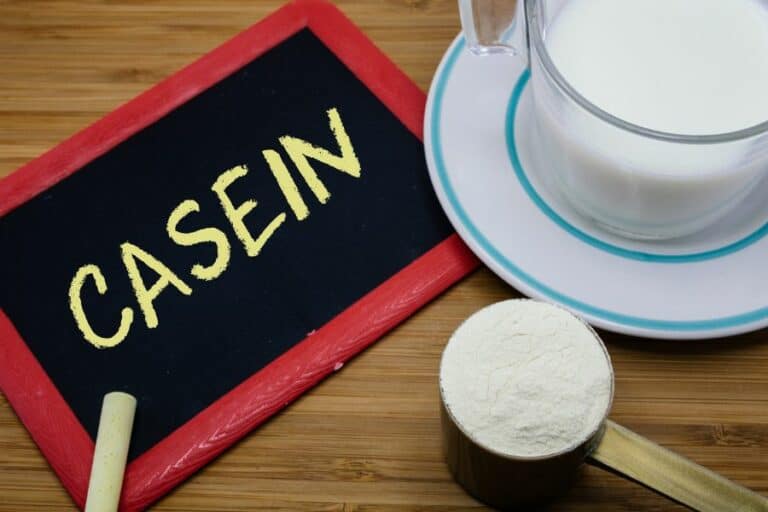How To Make Yourself Hungry – 13 Best Tips And Remedies

Ways to make yourself hungry | Remedies For Low Appetite | Foods to increase appetite | Exercises to improve appetite | Associated risks
Statistics show that about 67% of Americans reported skipping meals due to a lack of appetite.
A lack of appetite is when an individual has a reduced desire to eat. Reduced appetite can have severe health consequences for people of all ages.
A variety of psychological and physical factors can contribute to a decreased appetite. From hormonal imbalances to emotional eating, many factors can influence our relationship with food.
Scroll ahead to find out how to increase appetite and prevent the risks of malnutrition and weight loss.
How to make yourself hungry fast – 13 easy ways
Making yourself feel hungry is not as difficult as it seems unless you have any health concerns. In case of the latter, please seek the guidance of a doctor before trying any of the tips below.
If not, go ahead and read the following simple, appetite booster tips:
1. Don’t skip breakfast
Breakfast is one of the most important meals of the day, and consuming it is essential to maintain a healthy appetite. Research [1]PubMed: The causal role of breakfast in energy balance and health: a randomized controlled trial in lean adults has shown that eating breakfast helps to burn more calories, which boosts appetite. Try to make your breakfast as healthy and nutritious as you can. Incorporating lean proteins in your breakfast can boost your metabolism and improve your appetite over time.
2. Eat small portions frequently
Eating full meals can be challenging for a person with a low appetite. Instead, eating small portions can improve appetite while maintaining energy levels. So, divide your three large meals into five to six small meals.
Make sure the meals are high-calorie, nutrient-dense meals. And as your appetite increases, you can add more food(s) to these meals to satisfy your hunger levels.
In addition, try experimenting with different plate sizes as they can impact how much food you eat. If you want to make yourself hungrier, try using a smaller plate instead of a larger one.
3. Make mealtimes enjoyable
Stimulate your slumped appetite by making your mealtimes enjoyable and social. Avoid watching TV while eating, and try to eat in the company of people you love.
You can also change your menu often to prevent boredom from eating the same food.
Throw in a dash of herbs, such as cilantro, spices like black pepper, and dressings made of lime juice and olive oil.
4. Mindful eating
Mindful eating is the art of consuming food with complete awareness of its sensory experiences. It helps you focus on the food’s taste, smell, and texture. By increasing our engagement with our food, mindful eating makes us more aware of our hunger cues, leading to improved appetite and fewer bouts of emotional eating.
5. Eat less fiber
High-fiber foods or diets do not get digested as quickly as other carbs. This leads to decreased calorie intake and feelings of fullness, which eventually helps to lose weight and further prevents weight gain.
To make yourself hungry, you should try to follow one eating habit of consuming less fiber. This will subsequently help you eat enough food throughout the day. Make sure you do not cut down on them entirely since fiber is an essential nutrient for the health of your gastrointestinal(GI) system.
6. Eat healthy snacks between meals
We do know that a healthy snacking habit is great for boosting one’s metabolism and burning calories. However, the relationship between snacking and hunger inducement is not well known. Nutritious and healthy snacks can act as natural appetite stimulants.
When you snack ahead of your actual mealtime, your body perceives this to be a signal of a full meal coming its way. Your digestive system goes into full swing, starts secreting stomach acid, digestive juices, and your blood sugar drops down in preparation for the meal ahead. So, by the time you actually sit down for your meal, you’re already feeling hungry.
7. Schedule meal times
When you have an eating schedule, your body gets used to the idea of food coming in at certain times. This makes it prepare the digestive system in anticipation of food and makes you hungrier at meal times. It also helps to regulate your metabolism. You can make your own schedule or find one online that fits your lifestyle.
8. Do light exercises
Light exercises can help increase your appetite by sending signals to the brain that you need more energy. These exercises also help to improve blood circulation and stimulate the digestive system. As a result, you will feel hungrier and be able to eat more. Some of the light exercises you can do include brisk walk, swimming, and yoga.
9. Chew gum
While studies on the impact of chewing gum on our appetite are limited, some researchers believe that it can help increase hunger. This is because chewing gum stimulates the secretion of gastric juices and saliva. These juices help to break down food and make you feel hungrier.
However, make sure to eat your meal only once the aftertaste of your gum begins to fade away. The taste of gum often interferes with the taste of normal food, making them less palatable.
10. Use of herbs and spices
Some foods can be a bit heavy on your stomach. They may delay digestion and reduce your appetite.
Herbs and spices can help you digest heavy foods and prevent bloating and a permanent sense of fullness.
You can add herbs and spices like black pepper, cinnamon, mint, coriander, and ginger to your dishes.
11. Drink 6-8 glasses of water every day
Your fluid consumption plays a vital role in your appetite. Dehydration can lead to fatigue and difficulty concentrating. This can eventually lead to messed-up eating patterns. You may suffer from bouts of emotional eating or find it hard to eat when you’re actually hungry.
Moreover, water and other healthy fluids keep your gut healthy. This is very important because healthy digestion is a must if you want to have a good appetite or hunger.
Try to consume at least 6-8 glasses of water every day. If you find that difficult, add a dash of lime juice or some mint leaves to make it more palatable. You could also try herbal teas or vegetable soups to up your fluid intake.
12. Sleep on time
Sleep health and hygiene are closely interlinked to the health of our gastrointestinal(GI) system. When we don’t get enough sleep, it can lead to an unhealthy increase or decrease in appetite.
So, if you want to make yourself hungrier, find out how many hours of sleep you need at your age and try to get as much.
You can also try reading, bedtime yoga, or warm baths to relax your mind and induce sleep.
5 remedies for low appetite
There are a few other remedies you can also count on to handle your lack of appetite. If you want to know how to get hungry and boost your appetite, follow these remedies:
1. Coriander
Coriander is a simple and effective remedy to rely on. Studies [2]National Library of Medicine: The effect of hydroalcoholic extract of Coriandrum sativum on rat appetite have shown that the herb aids in digestion and stimulates appetite.
How to use
Take clean coriander leaves and prepare juice from them. Add a pinch of salt and lime juice to this juice and drink 1-2 tablespoons of it every day.
2. Ginger
An amazing appetite stimulant, ginger works wonders for those with poor appetites. Drinking water prepared with dried ginger can also treat digestive problems.
How to use
Boil a cup of water with some dried ginger powder on a low flame for 5-10 minutes. Cool this concoction, store it in a jar, and drink it daily.
3. Omega-3 supplements
Marine-based omega-3 fatty acids improve an individual’s desire to eat. So, you can count on fatty fish, fish oil, and even algae-based omega-3 supplements to improve your appetite.
How to use
Take 1-2 capsules of fish oil or omega-3 supplements as directed by your physician.
4. Maple syrup
Besides being a healthy sweetener, maple syrup also regulates the digestive system by stimulating hunger.
How to use
Take half a cup of pure maple syrup and mix it with 4-5 cups of water. Add 1-2 teaspoons lemon juice and heat the mixture for a few minutes. Let it cool down, and drink 2 spoons every day.
5. Black pepper oil
Black pepper oil is a potent appetite stimulant. Research [3]PubMed: Olfactory stimulation using black pepper oil facilitates oral feeding in pediatric patients receiving long-term enteral nutrition has shown that it boosts appetite through olfactory stimulation.
How to use
Take a glass of lukewarm water. Add 2-3 drops of black pepper oil and 1 tablespoon of maple syrup or honey. Drink this water every day.
List of other foods that increase appetite
Paying attention to the foods you eat can help you develop a healthy appetite. If you are thinking about how to make yourself hungry, here is a list of foods that can help:
- Beans
- Egg whites
- Dried fruits
- Protein bars
- Fruit smoothies
- Nuts and nut butter
- Cheese and yogurt
- Meat, poultry, and fish
- Cheese or cream sauces
- Bitter vegetables, such as kale, collard, etc.
- Fruits like bananas, avocados, and apples
- Healthy oils, such as avocado oil and olive oil
List of exercises to improve appetite
Physical activity can stimulate one’s appetite by boosting the metabolic rate. Light exercises before meals can increase your hunger pangs. Try to include the following exercises to improve your appetite:
- Walking
- Yoga and mat exercises
- Planks
- Bicycle crunches
- Half curls
- Deep breathing exercises
Risks of artificially induced hunger
There are people who rely on appetite stimulants to regulate their appetite. Appetite stimulants, also known as orexigenics, are substances, such as hormones, or medications, that increase an individual’s feeling of hunger. However, they come with a handful of side effects. Some adverse health risks of artificially induced hunger include:
- Acne
- Confusion
- Dizziness
- Hallucinations
- Mood changes
- Upset stomach
- Changes in voice
- Changes in sex drive
- Excessive hair growth
- Irregular menstrual cycle
Conclusion
Poor appetite or loss of appetite leads to weight loss and malnutrition. Fortunately, a few changes to your diet and lifestyle and some simple remedies can help eliminate appetite loss.
We recommend not trying artificial appetite stimulants like supplements and medications without consulting your doctor.
References







